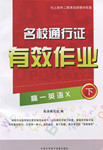题目内容
Unlike chemists and physicists, who usually do their experiments using machines, biologists and medical researchers have to use living things like rats. But there are three Nobel prize-winning scientists who actually chose to experiment on themselves – all in the name of science, reported The Telegraph.
1. Werner Forssmann (Nobel prize winner in 1956)
Forssmann was a German scientist. He studied how to put a pipe inside the heart to measure the pressure inside and decide whether a patient needs surgery.
Experiments had been done on horses before, so he wanted to try with human patients. But it was not permitted because the experiment was considered too dangerous.
Not giving up, Forssmann decided to experiment on himself. He anaesthetized (麻醉) his own arm and made a cut, putting the pipe 30 centimeters into his vein. He then climbed two floors to the X-ray room before pushing the pipe all the way into his heart.
2. Barry Marshall (Nobel prize winner in 2005)
Most doctors in the mid-20th century believed that gastritis was down to stress, spicy food or an unusually large amount of stomach acid. But in 1979 an Australian scientist named Robin Warren found that the disease might be related to a bacteria called Helicobacter pylori.
So he teamed up with his colleague, Barry Marshall, to continue the study. When their request to experiment on patients was denied, Marshall bravely drank some of the bacteria. Five days later, he lost his appetite and soon was vomiting each morning – he indeed had gastritis.
3. Ralph Steinman (Nobel prize winner in 2011)
This Canadian scientist discovered a new type of immune system cell called the dendritic cell. He believed that it had the ability to fight against cancer.
Steinman knew he couldn’t yet use his method to treat patients. So in 2007, when doctors told him that he had cancer and that it was unlikely for him to live longer than a year, he saw an opportunity.
With the help of his colleagues, he gave himself three different vaccines based on his research and a total of eight experimental therapies. Even though Steinman eventually died from his cancer, he lived four and a half years, much longer than doctors had said he would.
1.What’s the main purpose of the article?
A. To introduce a few Nobel prize winners who did experiments on themselves.
B. To list difficulties that scientists went through in order to make important discoveries.
C. To explain why some scientists chose to experiment on themselves.
D. To introduce some dangerous experiments that Nobel prize winners did on themselves.
2.Which of the following is TRUE according to the article?
A. Forssmann’s experiment ended in failure.
B. Forssmann had the pipe pushed all the way into his heart.
C. Barry Marshall succeeded by drinking some Helicobacter pylori.
D. Barry Marshall’s experiment on himself confirmed that most doctors’ belief about gastritis
was correct.
3.The underlined word “gastritis” in Paragraph 5 probably means ______.
A. a kind of bacteria
B. a kind of stomach disease
C. a new type of therapy
D. a large amount of stomach acid
4.From the text, we can conclude that Ralph Steinman ______.
A. discovered a new type of cancer cell called the dendritic cell
B. tried different therapies containing the dendritic cell on himself
C. had his request to experiment on patients denied
D. believed that he was better than doctors at treating cancer
1.A
2.C
3.B
4.B
【解析】
试题分析:不同于化学家和物理学家使用仪器进行试验,生物学家、医学专家使用像老鼠一样的生物进行试验。但是,有三个获得过诺贝尔奖的科学家,他们是用自己的身体进行试验的。
1.But there are three Nobel prize-winning scientists who actually chose to experiment on themselves”和文中的小标题可知,文章主要介绍了三个以自己作为研究对象的获得诺贝尔奖的科学家,故选A。
2.Marshall bravely drank some of the bacteria.”可知,Barry Marshall亲自喝下了幽门螺杆菌,故选C。
3.the disease might be related to a bacteria called Helicobacter pylori”可知,划线词指的是一种疾病,故选B。
4.With the help of his colleagues, he gave himself three different vaccines based on his research and a total of eight experimental therapies.”可知,Ralph Steinman给自己注射过三次基于他的研究的不同的疫苗,进行了八次实验性治疗,故选B。
考点:科学类短文阅读

 名校通行证有效作业系列答案
名校通行证有效作业系列答案